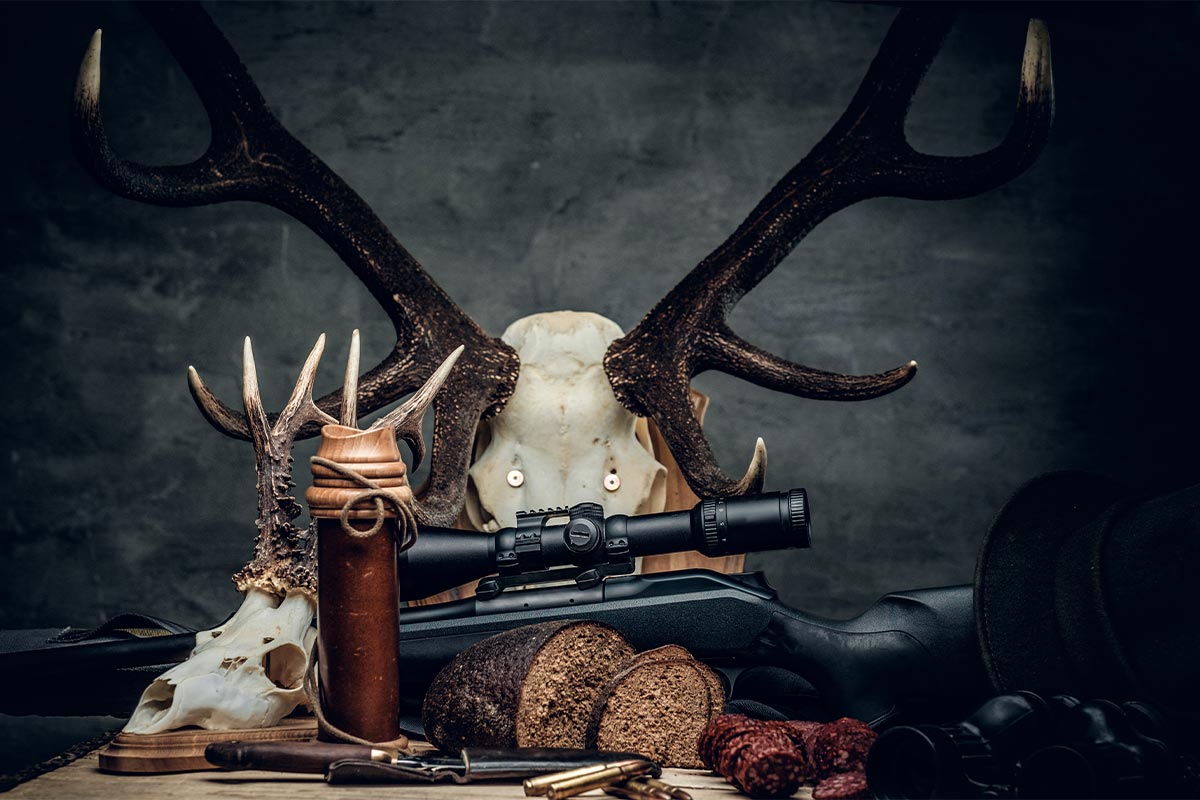How to Plan A Successful Hunting Trip

Hunting out-of-state is something we’ve all thought about at one point or another. The idea of going on an adventure in a new place and, perhaps, even pursuing an animal you’ve never hunted before is very thrilling and exciting.
Everybody should get to experience the unique joy of hunting at least once in their life, but planning for a hunting trip can be overwhelming.
7 Tips for Planning A Hunting Trip
Whether you’re an experience hunter or someone who’s new to it all, these tips will increase your chances of having a successful hunting trip:
1. Decide on what you want to hunt.
First of all, you’ll need to decide what kind of game you want to hunt. Are you interested in rifle elk hunts? Or are you planning to stick with a local target, like a deer or turkey?
Many hunters have a tendency to hunt for the same games over and over. And while traditional hunting trips are fine, there are a plethora of new possibilities open to hunters nowadays. If you want your next hunting trip to be more memorable, don’t be afraid to think out of the box and try something new!
2. Research possible hunting locations.
As soon as you’ve decided on a target, it’s time to choose a location. When deciding where to go hunting, there are several variables that you need to consider, such as the price, the type of accommodation available, the terrain, and whether you want a guided hunting trip or not.
You should also try to find out if other hunters have had any luck hunting in the area. There’s no denying that hunting trips are a lot more fun where you’re not going home empty-handed.
3. Don’t forget to check the weather.
It’s surprisingly easy to forget to check weather updates on the days leading to the hunting trip because you get occupied by all the preparations and excitement.
This is not to say that a little rain is enough reason for you to cancel your trip, but having the right type of hunting clothes and gear with you will make the experience so much better. Packing up extra clothes for when your hunting gear gets wet or it gets colder than expected will make you more comfortable.
4. Create a packing checklist.
Choosing what to bring on your hunting trip largely depends on where you’ll be hunting, but there are a few essentials you’ll need to take with you no matter where you go. The basics include your weapon of choice, ammunition, tags and licenses, flashlights, scent killer, knife, proper camouflage, weather-appropriate clothing, and – of course – food.
If you’re hunting with several people, you can spread out the supply assignments among yourselves. Make sure there’s at least one flashlight, a can opener, and a first aid kit somewhere in the party.
5. Delegate roles and responsibilities.
Just because you organized the trip does not mean you have to do everything on your own. You can delegate duties to the other members of the group like navigation, food supplies, cooking, and cleaning up the campgrounds.
If you’re going hunting as a family, you could use this as an opportunity to teach your kids about responsibility.
6. Double-check state hunting laws and required licenses/permits.
Always research the application deadlines in the states you plan to hunt in, including the licenses you need. See to it that everyone has a valid hunting permit and tag before heading out
Also, make sure you check the rules and regulations and, if there’s anything that isn’t clear to you, don’t be hesitant to ask their wildlife agency. The length terms of a hunting license can vary from state to state and non-residents may be restricted in the number of animals they can take per day. Knowing these things beforehand can keep you from getting in trouble with the law.
7. Hire a guide or outfitter.
It’s not always enough to know the rules when it comes to hunting. Even experienced hunters still hire guides and outfitters to help them make the most of their trip, especially if it’s a new location or they’re hunting a game they’re unfamiliar with.
A competent outfitter can relieve you of the burden of lugging around your hunting gear, while guides can tell you where animals are likely to congregate and which weapon is best for a given situation.
Have fun and enjoy the experience.
In the end, it doesn’t matter what kind of hunting trip you go on or where – what’s important is that you enjoy the experience as much as you can, even when things don’t go as planned. Hunting isn’t something you can do all-year-round, so savor your moments in the field and focus on having a great time.
About the Author
Maren McReynolds is the Content Marketing Director of Black Mountain Outfitters, a company that offers world-class guided hunts in New Mexico, Arizona, and South Dakota. When not working, she spends time swimming with her two kids and giving back to the community.



1 comment
Add to number 6 check hunter education requirements. I have been teaching hunters ed for over 40 years and can not tell you the number of times people have contacted me for a hunter safety card at the last minute. Also, most states will not take a temporary card. Most are willing to charge an outrageous amount for an “abbreviated” class but usually only good for that one hunt Our cards here in Arkansas are good in all 50 states. Check your state and make sure your card is good in the state where you’re going to hunt.